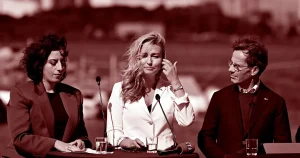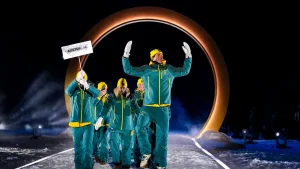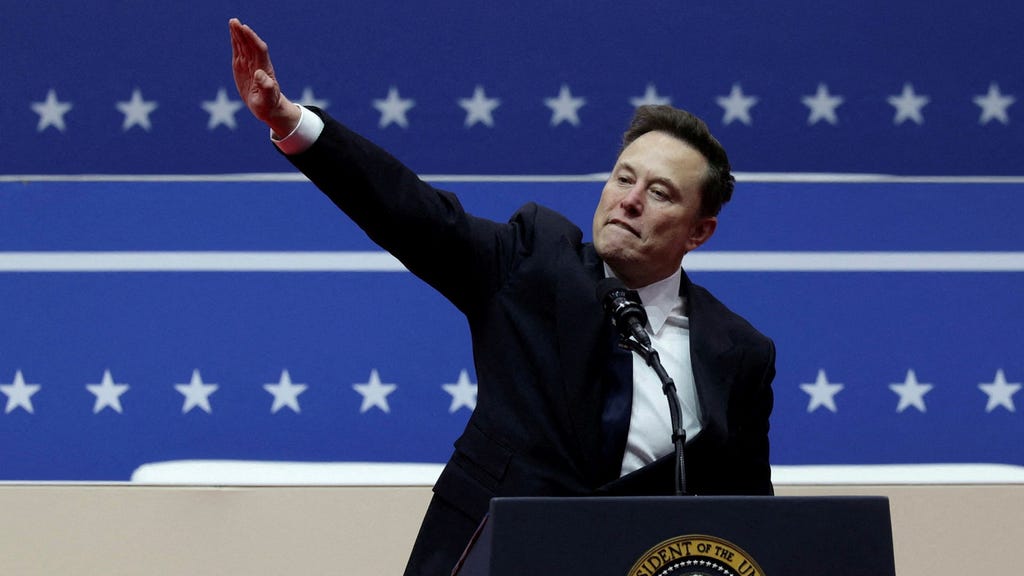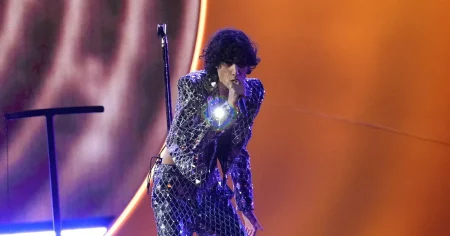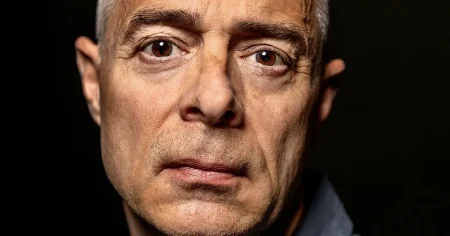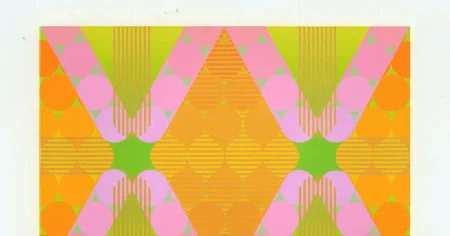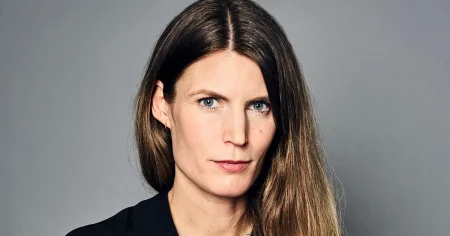The old president welcomes the new to the White House with a chillingly mundane ”Welcome home.” The news media, both domestic and international, attempts to maintain a veneer of normalcy, reporting on the fresh Washington air and expressing hopes for national unity. This facade, however, is quickly shattered just three hours later when Elon Musk raises his right arm in a gesture laden with historical and ominous significance. The scene is a stark juxtaposition: a peaceful transfer of power juxtaposed with a blatant display of a potentially dangerous ideology.
The inauguration ceremony itself is a theatre of the absurd, populated by figures attempting to maintain their dignity in a time of profound undignified display. The outgoing president and other former leaders, once symbols of enduring power, are now reduced to awkward smiles and forced handshakes, their legacy seemingly overshadowed by the incoming administration. The familiar language of democracy – ”president,” ”administration” – rings hollow, masking the reality of a potential autocrat and his cohort of nihilistic plutocrats, flushed with the intoxicating elixir of newfound power. The media, struggling to comprehend the unfolding events, resorts to platitudes about ”a pleasant moment,” further highlighting the disconnect between the observed reality and the desired narrative.
The presence of international figures amplifies the unsettling atmosphere. Post-fascist Giorgia Meloni of Italy, right-wing populist Javier Milei of Argentina, and the specter of Hungary’s Viktor Orbán, though absent, loom large. The new president’s speech, filled with rhetoric about territorial expansion, further stokes anxieties. Then comes the defining moment: Musk’s raised arm, a gesture immediately recognized by CNN commentators for its historical echoes. The moment crystallizes the growing fear that the new world order is not one of unity and hope, but of escalating division and a potential descent into authoritarianism.
The unsettling familiarity of the situation is underscored by historical precedent. The author draws parallels between Musk and Henry Ford, another automotive magnate who used his wealth and media influence to spread hate, specifically antisemitism, in the early 20th century. Ford’s newspaper, the Dearborn Independent, became a mouthpiece for anti-Jewish propaganda, fueling the rise of Nazism in Germany. While Ford may not have publicly raised his arm in the Nazi salute, his actions served as a chilling precursor to the current display of potentially dangerous ideology. Musk’s gesture, therefore, is not an isolated incident, but part of a disturbing pattern of powerful figures using their platforms to promote divisive and harmful ideologies.
The chilling aspect of Musk’s gesture isn’t merely its historical resonance, but its implications for the future. It signifies the emboldening of a global network of sympathizers, who, inspired by the new leader, feel empowered to shed their inhibitions and openly express their extremist views. The seemingly innocuous act of a raised arm becomes a symbolic unleashing of suppressed prejudices and a potential precursor to more overt acts of intolerance. The author argues that we are witnessing not just a political shift, but a cultural one, where previously fringe ideologies are becoming increasingly mainstream, normalized, and even celebrated.
The concluding message is one of profound unease and foreboding. The author expresses a weary resignation to the constant oscillation between the ludicrous and the terrifying, suggesting a sense of normalization of the abnormal. However, the raised arm serves as a stark reminder that this is not merely another political spectacle, but a potentially dangerous turning point. The chilling ”Welcome home” at the beginning takes on a new, sinister meaning, suggesting not a return to normalcy, but an arrival at a disturbing new reality. The final warning is clear: this is just the beginning, and the implications are far-reaching and deeply unsettling. The author invites readers to confront the uncomfortable truth of the present and brace themselves for a future fraught with uncertainty and peril.



